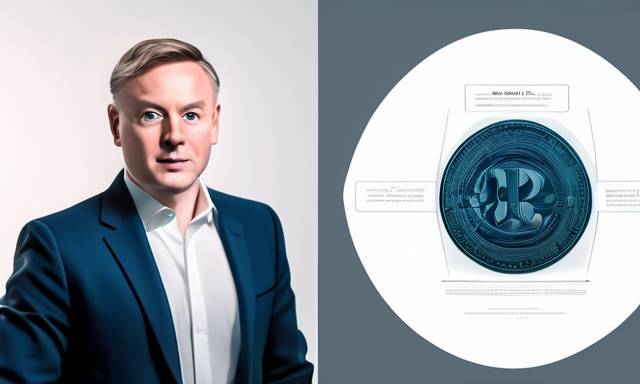Regulatory Progress and Crypto Adoption in Ireland 😊
This year marks a turning point for the cryptocurrency landscape in Ireland, as the nation is actively aligning its regulations with European Union (EU) standards. The introduction of the Markets in Crypto-Assets Regulation (MiCAR) aims to bring necessary oversight and uniformity to a previously fragmented regulatory environment across member states. This development is not just about regulatory compliance but also indicative of growing interest and adoption of digital currencies among businesses in Ireland.
Unveiling the MiCAR Framework 📜
Derville Rowland, the Deputy Governor of the Central Bank of Ireland, recently articulated the significance of MiCAR during her keynote address at a prominent compliance and legal conference. She emphasized that MiCAR will introduce a standardized regulatory framework that establishes specific obligations for various stakeholders in the crypto space. This includes:
- Issuers of e-money tokens.
- Providers of asset-referenced tokens.
- Crypto-asset service providers.
In addition to these categories, there will also be regulations governing public offers of crypto assets that are neither asset-referenced nor e-money tokens.
Addressing Market Fragmentation 🌍
Prior to MiCAR, the regulatory landscape for cryptocurrencies varied significantly from one EU member state to another, resulting in a fragmented market. With the introduction of this comprehensive regulatory framework, the EU aims to rectify these discrepancies by establishing a more cohesive market environment. Rowland highlighted that this unification effort is crucial to prevent inconsistent regulatory responses among different jurisdictions.
Support from European Supervisory Authorities 🔍
Rowland pointed out that the European Supervisory Authorities (ESAs) are advocating for a collaborative effort when it comes to the implementation of MiCAR across various national authorities. She underscored the importance of consistent regulatory approaches, stating, “We see this as highly important work. MiCAR serves as a preliminary attempt at regulation in this area, and it offers a critical opportunity to circumvent the emergence of diverse approaches in varying jurisdictions.”
Increasing Adoption of Cryptocurrency in Ireland 🚀
Ireland is witnessing a significant influx of businesses engaging with cryptocurrencies, ranging from exchanges to startups focused on blockchain technology. This trend is particularly prevalent among younger, tech-oriented individuals and finance professionals who are eager to explore and invest in new digital opportunities. This year’s shift towards digital currency adoption is driven by a combination of global trends and the advantage of reduced transaction costs associated with crypto payments.
Positioning Ireland for MiCA Compliance ⚖️
In a recent statement, Steven Eisenhauer, the Chief Risk and Compliance Officer at Ramp, remarked on Ireland’s positioning in the context of MiCA compliance. He noted that despite its relatively small size, the country boasts around twelve virtual asset service providers. Eisenhauer indicated that approximately half of the crypto firms that are gearing up for MiCA are eyeing Ireland, along with France, Germany, and Belgium, as potential hubs for their operations.
This illustrates Ireland’s growing reputation as a favorable environment for cryptocurrency ventures and compliance navigation, positioning itself strategically within the broader European context.
Hot Take on the Future of Crypto Regulation in Ireland 💡
The regulatory landscape in Ireland, bolstered by the MiCAR initiative, signifies a pivotal moment for the cryptocurrency domain. The strategic focus on regulation not only aims to foster market stability but also provides an essential foundation for innovation in the financial sector. With increasing adoption and a welcoming regulatory framework, Ireland stands poised to be a key player in the evolution of cryptocurrency within the EU and beyond.
In summary, this year serves as a critical juncture as Ireland merges its ambitions for growth in the cryptocurrency market with the necessity for coherent and robust regulatory structures.





 By
By
 By
By
 By
By

 By
By
 By
By